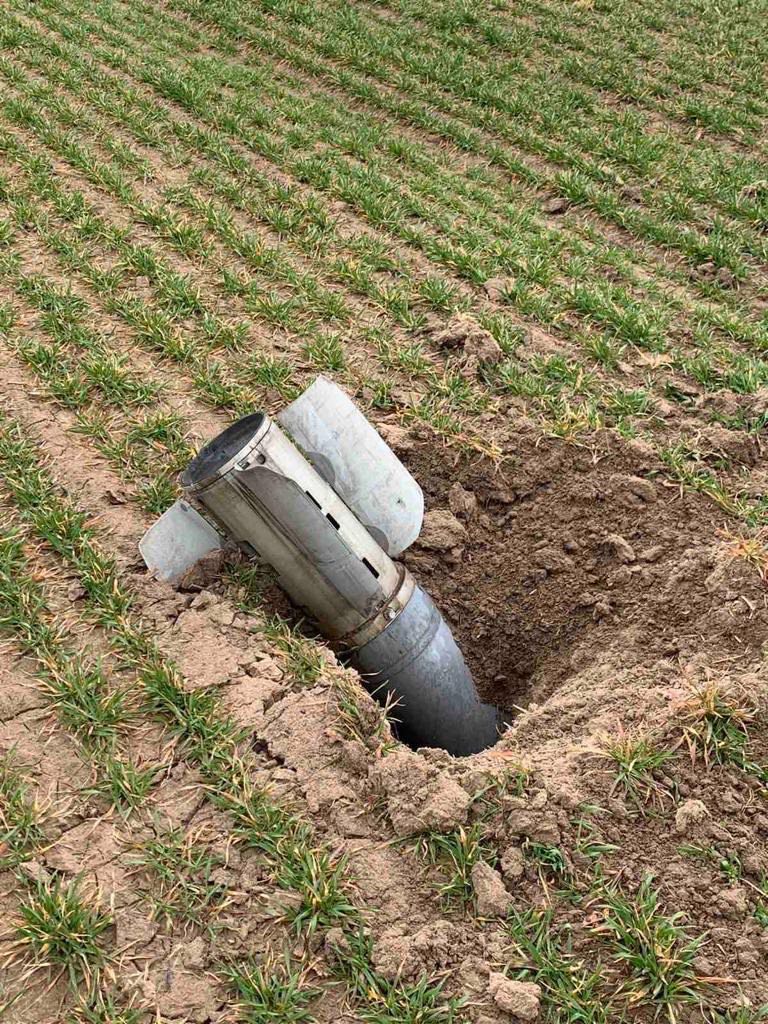Ukrainians deal with the Russians carnage
13. 04. 22
Ukrainians near Kyiv deal with the carnage of what Russia left behind.
Ivan Volodymyrovych has only had a few nights quiet sleep since Russians forced fled, taking with them the artillery and rocket launchers that had for weeks brought the thunder of war to this rural area east of Kyiv, in a failed attempt by invading soldiers to better their way into the capital.
But here, like elsewhere, the sudden calm has only brought new light to the toll of Russian invasion that has left behind tortured bodies and deadly fields. Soon after Russian forces left, Ukrainian ordnance team identified 17 munitions in a single square kilometer of fields operated by company Agro-Region, where Mr. Volodymyrovych works as a farm manager.
The ordnance experts cleared away most of the munitions on the Agro-Region lands, allowing tractors to quickly get to work. A week ago, the idea of sowing crops here seemed laughable, with a raging conflict that has killed many thousands and raised anxieties about looming food shortages. The swift tilling and fertilization of fields east of Kyiv is a testament to the strength of Ukraine’s continued resolve, even as the Russians retreat has revealed new atrocities – in particular against civilians living in a western suburbs of Kyiv, where dead women have been found naked and men have been discovered with hands tied and heads shot from the back.
Russians has denied any responsibility for civilian deaths, asserting against evidence to the contrary that the corpses were staged on streets.
How to remove unexploded munitions has become one of the central questions for Ukrainian farmers .
After Russians soldiers abandoned the positions they had used to fire rockets and shells on the lands Mr. Volodymyrovych managed, he called in an ordnance disposal team. It used drones and metal detecting equipment to identify unexploded munitions, including a 500-kilogram bomb. Once the experts deactivated the rockets, Mr. Volodymyrovych’s men used farm equipment to yank them out by their tails.

“The tractor was on the field minutes later”, said Mr. Volodymyrovych, who The Globe and Mail is identifying by his patronymic because he fears a Russian return and revenge. While the tractor worked, battle smoke was still curling from the horizon at the Ukrainian army gave chase to fleeing Russian forces. Five or 10 days later and it would have been too late to plant crops such as sunflowers.
We were very fortunate that our armed forces booted out the enemy, giving us a chance to proceed with these fields”, said Mr. Volodymyrovych, wearing military vest and carrying a rifle. Like other farmers hers, he belongs to a local Territorial Defence Forces militia group.
But three unexploded missiles remain on Agro-Region fields, wedged deep in the earth, their location marked with empty water bottles. They were left behind when the remaining crew was called away to more urgent needs in Bucha and other satellite cities on the west of Kyiv.
Ukraine said its State Emergency Service has roughly 500 specialists trained to defuse leftover munitions. But it is impossible to estimate how many munitions remain, it said in a statement Monday.
And Agro-Region’s success in resuming work sheds light on the immensity of the effort that confronts Ukraine even in places freed from fighting. It took the demining crew six hours to check 136 hectares, Mr. Volodymyrovych said. Agro-Region alone farms 12 000 hectares in the area. Most of that land was not affected by the fighting, but Mr. Volodymyrovych pointed to a line of trees marking the edge of an Russia and Belarus. Landmines could be hidden anywhere, terrifying farmers.
“There is a risk that the planting season will not start on any of the territory that was occupied”, Mr. Volodymyrovych said.
Perhaps worse are the naval mines that have been detected in the Black Sea. Their presence has helped to ensure shipping cannot resume at ports vital to Ukraine’s agricultural exports, which supply large percentages of the world’s wheat, corn and sunflower oil needs. Millions of tonnes of the 2021 harvest remain in warehouse and granaries, unable to find a way out (efforts to export by train have proved slow and expensive)
Even if farmers can plant this year, they have a little assurance that they will be able to sell what they reap.
“We will show as much as possible, hoping that the world will get united and finally push Russia to unblock the exports”, said Agro-Region chief executive officer Kateryna Rybachenko. “Otherwise, the world will face many many more problems, like food shortages when inflation is at record highs.”
Nathan Vanderklippe, international correspondent The Globe and Male